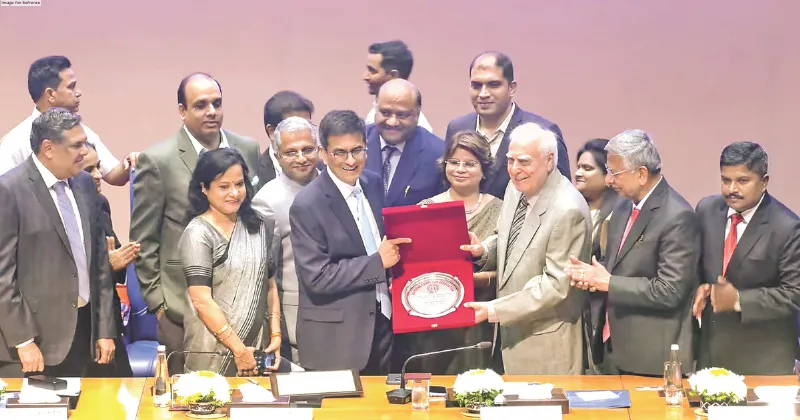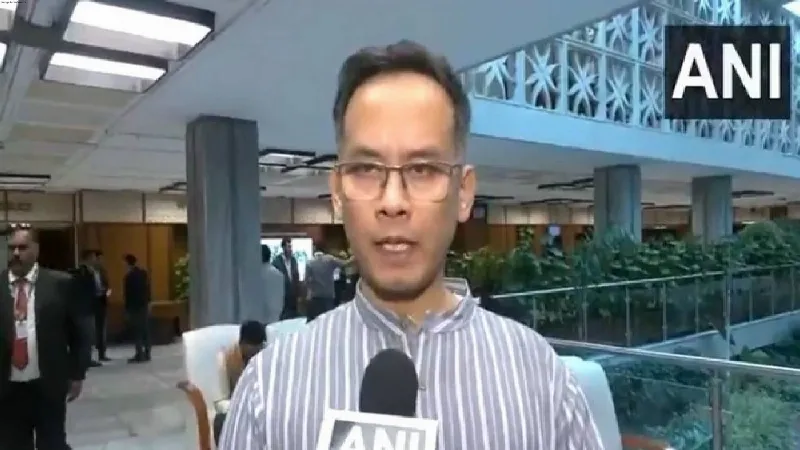Latest News
DYNAMICS OF FISCAL FEDERALISM IN INDIA

Lately, two nine-judge benches of Supreme Court have heard arguments about the powers of the states to levy tax, on mineral-rich lands and industrial alcohol within their jurisdiction. At the very outset, it is apt to mention that Article 246 declares that Parliament has exclusive power to make laws with respect to any of the matters enumerated in Union List of the Seventh Schedule. Under Entry 52 of the List I, Parliament can enact a law to regulate any industry in public interest. Furthermore, Entries 53 and 54 authorise Centre to regulate mines and mineral development and oilfields, petroleum products, respectively. Likewise, Entry 84 empowers Centre to levy excise duties on medicinal and toilet preparations containing alcohol and opium, Indian hemp, narcotic drugs and narcotics.
The Mines & Mineral (Development & Regulation) Act, 1957, has been enacted by the Parliament, to regulate mines and mineral. It ousts states’ jurisdiction to impose tax, other than royalty, on mineral rights. Likewise, in respect of industrial alcohol, the conflict has arisen from Industrial (Development & Regulation) Act, 1951 (as amended in 2016), which empowers the Centre to take under its control the industries specified in the First Schedule, if it is expedient in the public interest. Under heading 26 of this schedule titled “fermentation industries,” there are sub-headings a) alcohol and b) other products of fermentation industries. This has authorised Central Govt to regulate industries producing, supplying, distributing and indulging in trade and commerce of industrial alcohol.
BACKGROUND
In the backdrop of these disputes is the fact that all states are facing a revenue-expenditure imbalance due to our constitutional framework, which has devised allocation of tax revenue and expenditure between the Union and the states on the basis of comparative advantage. The states incur a bigger share of expenditure even as they earn lesser revenue. Hence, the states are disputing the powers of the Centre in respect of mines, minerals and industrial alcohol as they aim to increase their revenue.
ROYALTY AND MINERAL RIGHTS
Presently, states are levying royalty, at the rates fixed by the Centre, on minerals extracted within their jurisdiction, in accordance with MMDR Act, 1957. The mineral rights are vested in the states and are leased to the lessees. But the states are demanding the right to impose tax on mineral bearing land by differentiating between royalty and tax. Centre’s stand is that royalty is like a tax and there cannot be a further tax on the mineral rights under the federal scheme of the Constitution. Further, Entry 49 (taxes on land & buildings) of the State List cannot include any matter relating to mineral rights. Besides, Entry 50 (taxes on mineral rights) of the State List is subject to any limitations imposed by the MMDR Act, 1957, enacted by Parliament, as expedient in the public interest.
TAX ON MINERAL BEARING LAND
States’ position is that they must be fiscally empowered under the federal scheme of governance mandated by the Constitution. Their standpoint is that imposition of tax on mineral-bearing lands may increase price of minerals but that is not a ground to deprive the states from legitimately exercising powers conferred upon them by the Constitution under the federal structure. States claim that MMDR Act handles development and regulation of mines and minerals but does not deal with taxation. Hence, the states are free to levy tax on mineral bearing lands.
CASE AGAINST THE STATES - MINERALS ARE NATIONAL ASSETS
The Centre’s position is that it is immaterial that royalty is designated as a tax or not. If taxes on mineral rights are imposed, by whatever name, in relation to mineral development under a law made by the Parliament under Entry 54 of Union List, it will be relevant for the purposes of Entry 50 of the State List, which specifically acknowledges that the law to be made under Entry 50 of the State List will be subject to any limitations imposed by the central law. It is logical to conclude that mineral development necessarily includes mineral rights. Grant of mineral rights entails a levy, charge, impost or demand to be collected on the exercise of mineral rights. The framers of the Constitution did not contemplate that a law under Entry 54 of the Union List will not deal with levy on the exercise of mineral rights. Besides, supremacy of the Parliament, in relation to limiting states’ powers to tax mineral rights, is proclaimed by Article 246 of the Constitution.
BEGGARING THE NEIGHBOURS
If a state, endowed with key minerals, imposes a heavy tax, over and above royalty, on mineral extracted, it would result in lop-sided distribution of benefits from national assets. Minerals are required to be regulated by the Union Government through law to protect intergenerational equity and to ensure uniform economic benefits to all, irrespective of where they are concentrated. A tax imposed by a few mineral-rich states would impede foreign investment in mining sector, render minerals costlier and less competitive in international market and result in skewed economic growth among the states. The contention that availability of minerals across the country at competitive prices is essential to prevent, what Adam Smith called “beggaring the neighbours” policies, is quite convincing. Additionally, this will drive mineral, and consequent economic development, across the nation in a harmonised, streamlined and equitable manner.
TAXING ENTRIES CANNOT BE ENLARGED
It is notable that a nonharmonised fiscal regime, varying from state to state would force states, not richly endowed with mineral wealth, to procure raw material at higher prices from mineral rich states – the latter category of states will be at a significant advantage which would come at the cost of national interest in maximising economic development for all from the national mineral assets. The entries on levy of taxes are specifically mentioned in the Seventh Schedule. In substance, the taxing power can be derived only from a specific taxing Entry in an appropriate List [State of Karnataka versus State of Meghalaya (2022 SCeJ 0419)]. It is settled law that the taxing entries in the Seventh Schedule cannot be enlarged and states’ entitlement to impose tax on land and buildings, in Entry 49 of the State List, cannot include any matter relating to mineral rights. (To be concluded)...
THE VIEWS EXPRESSED BY THE AUTHOR ARE PERSONAL
Shrawan Sawhney The writer is a retired IAS officer





















